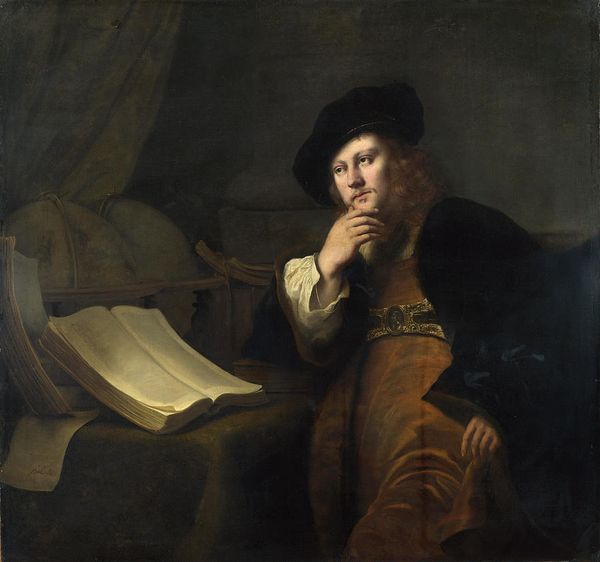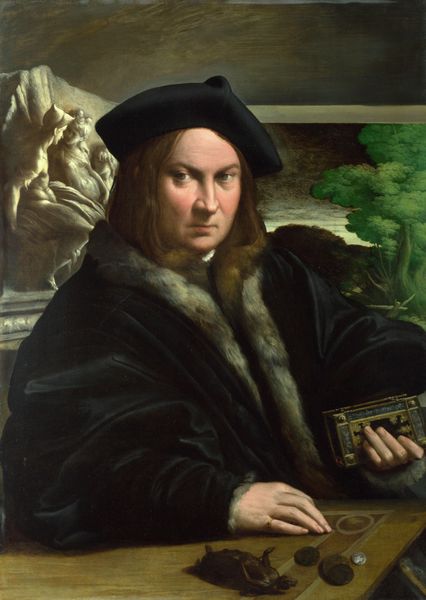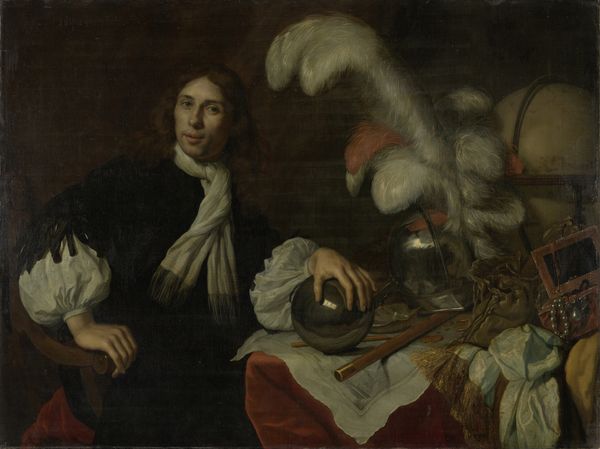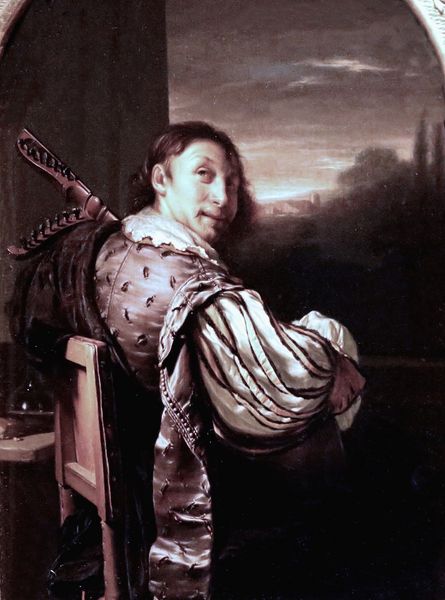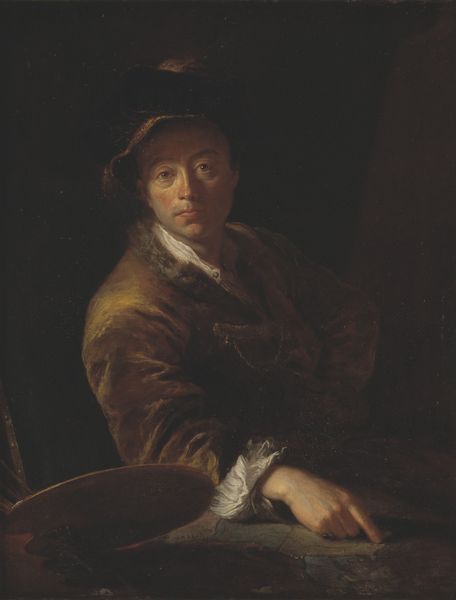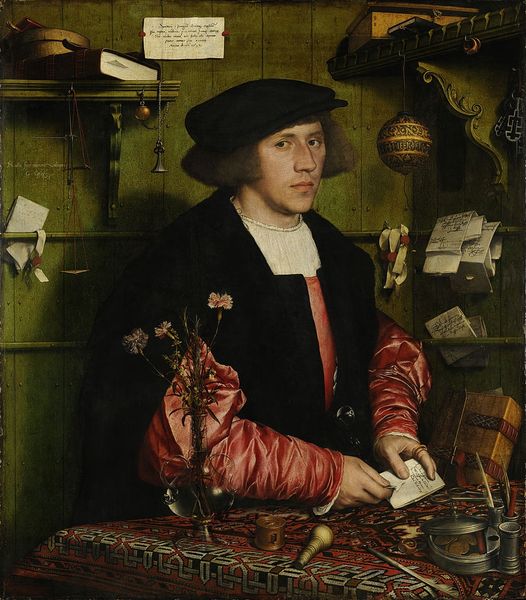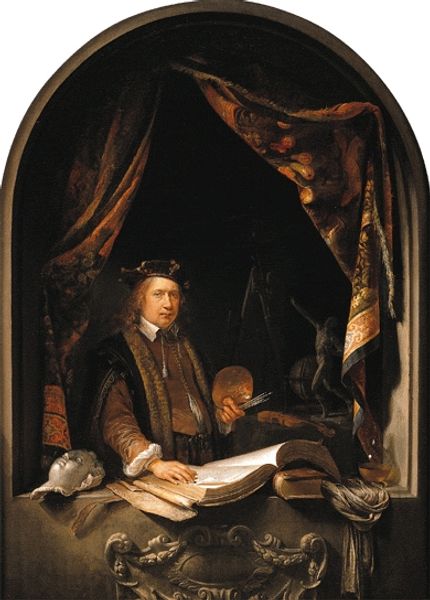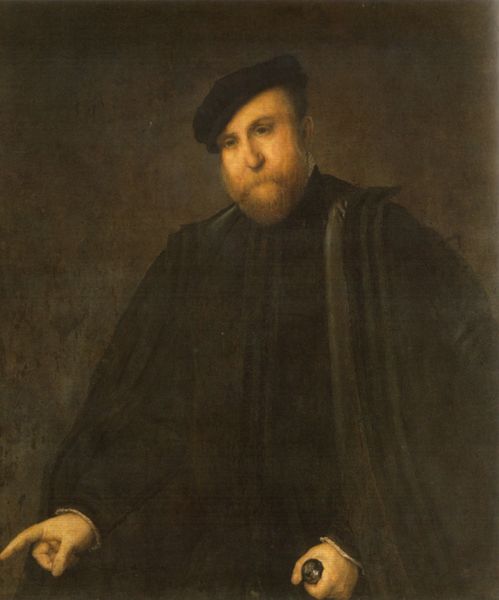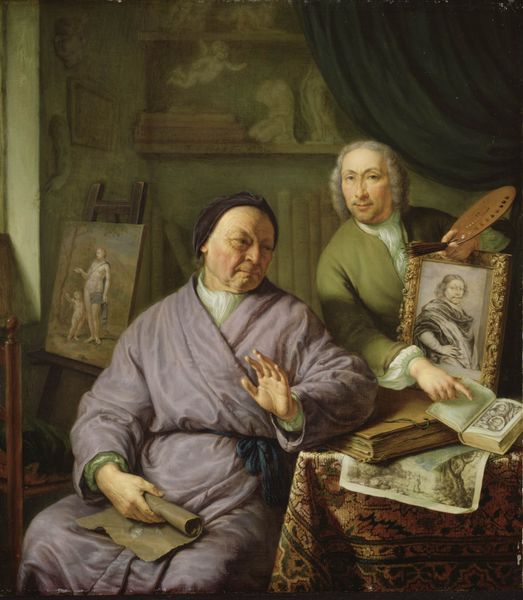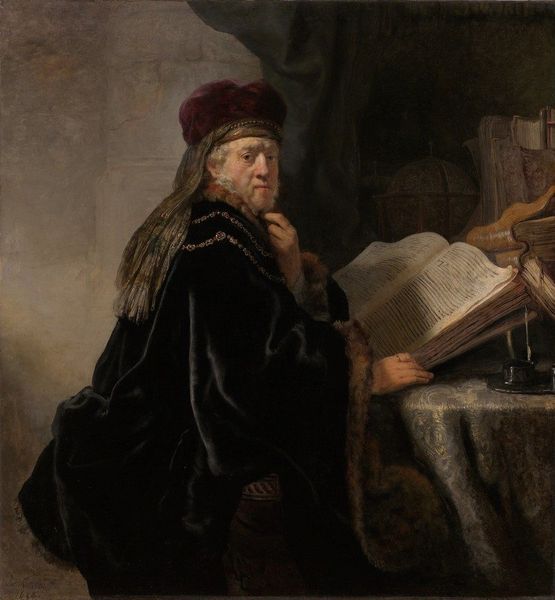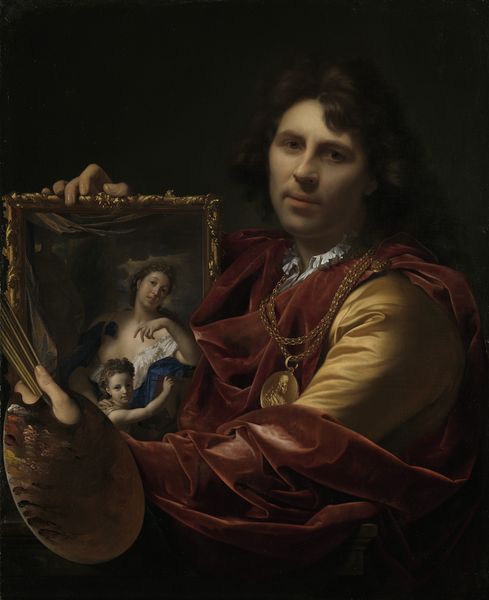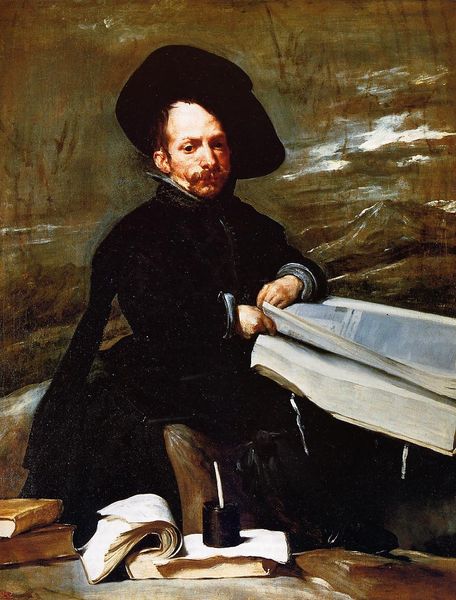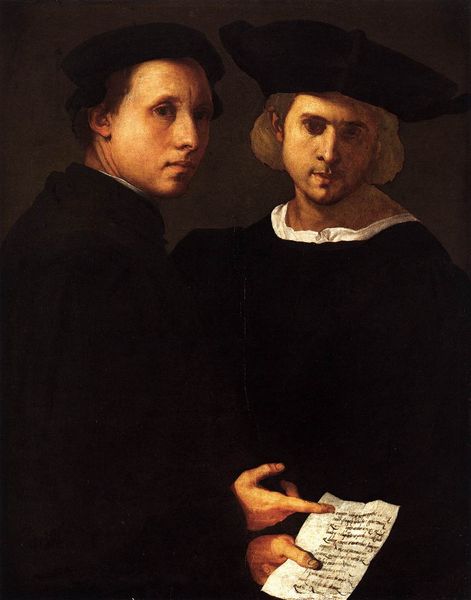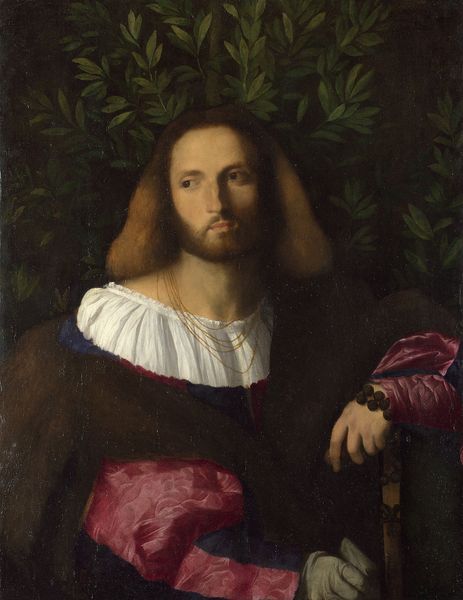
painting, oil-paint, canvas
#
portrait
#
baroque
#
painting
#
oil-paint
#
oil painting
#
canvas
#
underpainting
#
painting painterly
#
genre-painting
#
history-painting
#
academic-art
Dimensions: 111.5 cm (height) x 87 cm (width) (Netto)
Editor: This is Marcus Tuscher's "Portrait of John Lambert," painted in 1735, using oil on canvas. There's a lot to take in – his clothing, the busts in the background, all those papers... The portrait gives a real sense of wealth, but also maybe intellectualism. How do you interpret this work? Curator: Immediately, I'm drawn to the portrait's reliance on classical symbols. Note the busts—they’re referencing figures of antiquity, signifying wisdom and learning. The fur-lined robe is equally interesting. What does that say to you? Editor: Well, it speaks to status and power, definitely. The sitter wants to associate himself with important cultural touchstones. It all feels very deliberate. Curator: Precisely. Think about what fur has represented through different periods – protection, luxury, even savagery. Here, it could represent an embracing of worldly success alongside intellectual pursuits. It's a powerful visual statement, almost a coded language about identity. What about the papers? Editor: I suppose they might represent John Lambert's scholarly or professional life, suggesting correspondence or important documents, perhaps alluding to some great responsibility. But, on the other hand, I almost wonder if the clutter could suggest how worldly pursuits obscure his intellectual life. Curator: An intriguing thought. It is through these subtle contrasts, these visual cues and cultural memories that we, the viewers, engage with a richer understanding of not just the portrait, but the world it represented. We begin to read it as a narrative. Editor: That's fascinating, how these combined visual elements work together, like layers in a complex symbolic language. It’s certainly given me a new perspective on the portrait genre. Curator: And, it highlights how artistic expression provides us with insights into the emotional and psychological frameworks of an entire historical epoch.
Comments
No comments
Be the first to comment and join the conversation on the ultimate creative platform.
